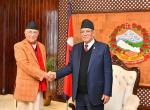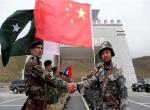India has once again joined the US and other western countries to censure Sri Lanka at the United Nations Human Rights Council (UNHRC) in Geneva on the Tamil issue. This is objectionable on many counts. For many years we have fought our own battles with the earlier incarnation of the UNHRC on the issue of human rights violations of the Kashmiris at the instance of Pakistan. Organisations like the Human Rights Watch and Amnesty International, the very same that are exposing Sri Lanka to ignominy at Geneva, targeted us relentlessly in the past as delinquents. The US played an encouraging role in this, with the State Department bruising us in its own rights annual reports. We should not have forgotten our own experience so quickly and made common cause with these countries and organisations so readily.
We have all along opposed using human rights as a political instrument to "name and shame" those countries considered adversaries and shield friendly countries with a deplorable rights record from denigration. We have favoured dealing with such sensitive issues bilaterally, with a dialogue oriented rather than a denunciatory approach. We have therefore voted against country-specific resolutions as a matter of principle — until last year when we voted against Sri Lanka.
Our stakes in Sri Lanka are far higher than those of the US. The latter's human rights activism in our neighbourhood is problematic, especially as it reduces our diplomatic room for manoeuvre and forces us to adopt positions that we may not consider opportune because, more than the US, we have a balance a whole host of complex factors and challenges. Such extra-regional initiatives only generate policy tensions for us. Our strategic partnership with the US requires that it defers to our priorities and interests in our neighbourhood, rather than force us into uncomfortable positioning. India should have an independent policy, at least in our neighbourhood, rather than be forced to follow the US lead.
This does not mean that we have to condone Sri Lanka's failure on reconciliation and accountability issues, implementation of the recommendations of the Lessons Learnt and Reconciliation Commission and conducting an independent and credible investigation into allegations of violations of international human rights law. But we should deal with these issues bilaterally with Sri Lanka, and as forcefully as required. We should not outsource such responsibility to others, acknowledging in the process the limitations of our clout with our neighbours. We will count even less with our neighbours if we do that.
If we have been buffetted by external pressure on our diplomacy at the UNHRC, our position there has suffered even more because of internal pressure from the DMK. Having voted in favour of an anti-Sri Lankan resolution last year, we couldn't have changed that position this year without progress by Sri Lanka on pending political and human rights issues. However, to balance an unfriendly blow to Sri Lanka in which we would be participating, we tried initially to soften the provisions of the US prompted resolution in order to make them less intrusive and more respectful of Sri Lankan sovereignty, consistent with our principled position on such matters. But as DMK pressure increased we seem to have stepped back from such efforts and asked the Sri Lankan Government to negotiate with the US directly.
When the DMK upped the ante by breaking away from the UPA, the panic-stricken government made a volte-face and sought to harden the very resolution against Sri Lanka that we had sought to soften to begin with. We made a last-ditch effort to propose amendments to that effect, which the US turned down for fear of narrowing the support for a tougher resolution. Ironically, this has made the US look moderate and India as baying for more Sri Lankan blood. India ended up looking opportunistic and unprincipled, a victim of its internal political wranglings, with a government in New Delhi not fully in control of foreign policy. The maturity and steadiness of our diplomacy gets questioned by such antics.
We should accept that India's foreign policy should reflect domestic sentiments. The importance of public opinion cannot be disregarded, but we have seen in the case of many democratic countries that foreign policy decisions get taken even when vocal sections of society are against because larger national interests dictate a particular course of action, however unpopular temporarily. Our foreign policy towards Sri Lanka cannot be dictated by local sentiment in Tamil Nadu, however legitimate in some respects the anguish of our Tamil population over happenings in Sri Lanka. We have to differentiate between domestic sentiment at large and strong regional sentiment, especially if it is hijacked by extremists talking loosely of genocide four years after military operations have ended.
Published Date: 25th March 2013








Post new comment